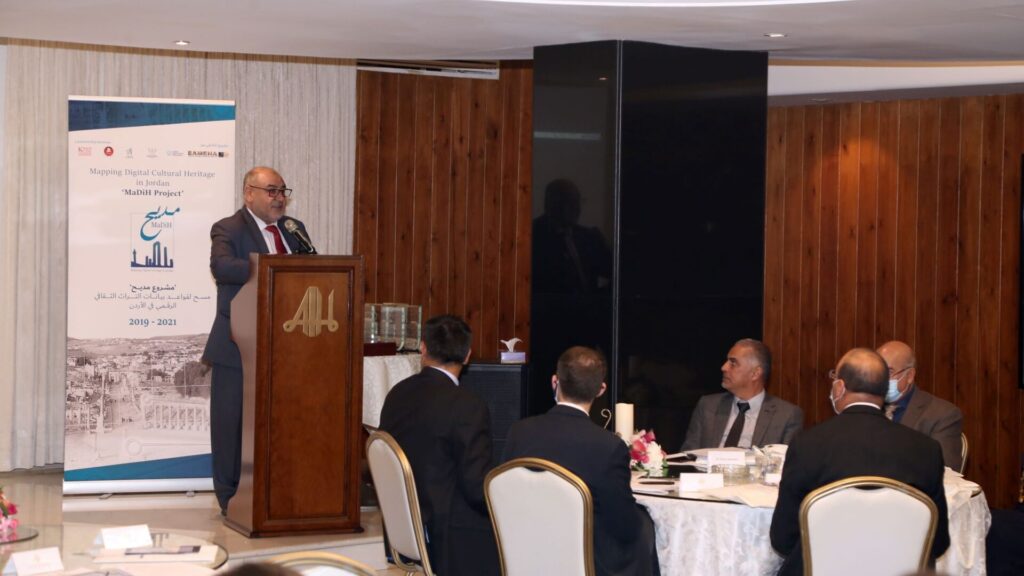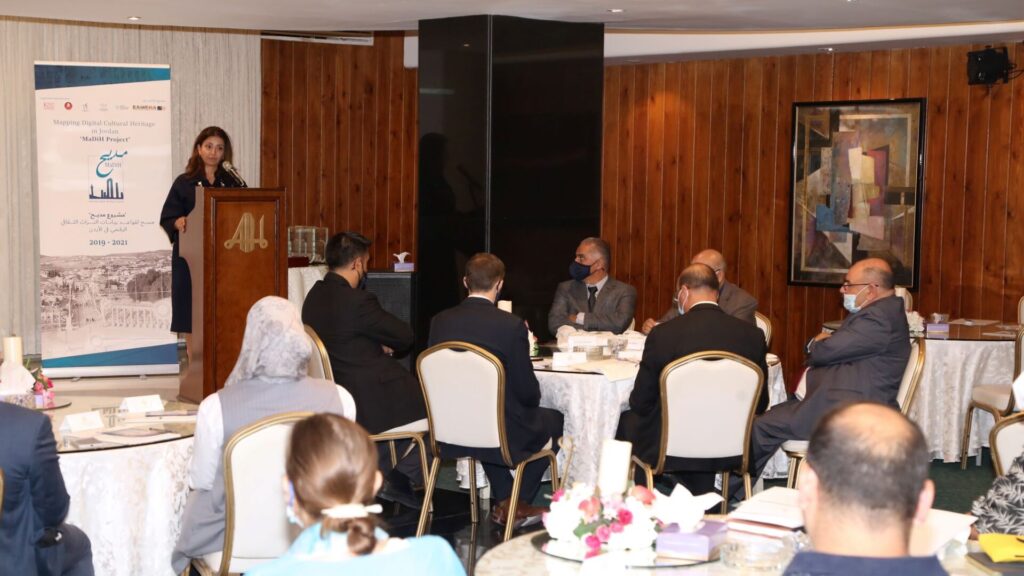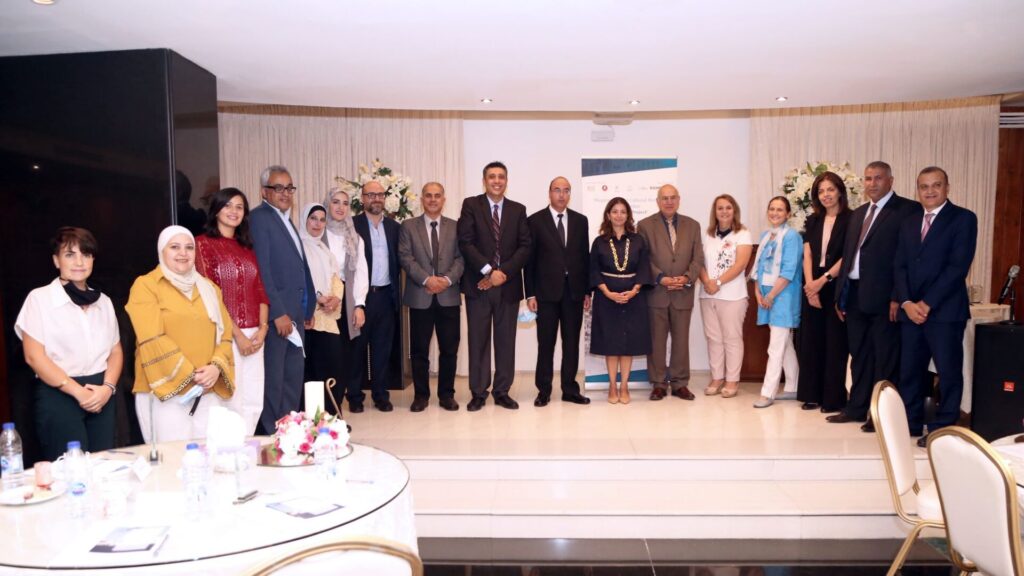Tuesday 13th July saw the official close of phase one of the MaDiH project in Amman. Under the patronage of HRH Princess Dana Firas, the chair of the MaDiH Steering Committee, the event brought together more than 30 people. Prof. Fadi Bala’awi (Hashemite University), the principal investigator of the project from Jordan, outlined the key project outcomes and achievements as well as prospects for continuing future phases of the project.
Phase one of MaDiH (مديح) was a pilot project and collaboration between King’s Digital Lab (KDL) at King’s College London, the Hashemite University (HU), the Council for British Research in the Levant (CBRL), the Department of Antiquities of Jordan (DoA), the Jordan Open Source Association (JOSA), and the Endangered Archaeology in the Middle East and North Africa (EAMENA) project. It is a Newton-Khalidi funded project funded in the UK by the Arts and Humanities Research Council (AHRC). Phase one of the project aimed to contribute to the long-term sustainable development of Jordan’s digital cultural heritage by identifying key systems, datasets, standards, and policies, and aligning them to government digital infrastructure capabilities and strategies.

Guests of the closing event included: Prof. Sultan Al Maani; Prof. Abd Al Baset Al Zyoud (Hashemite University); Dr Ali Al Manaseer (Ministry of Tourism and Antiquities); Prof. Firas Alawneh (Queen Rania Faculty of Heritage and Tourism); distinguished decision-makers and academics from the cultural heritage field as well as the MaDiH team. HRH Princess Dana Firas expressed her appreciation for the MaDiH project’s mission to preserve cultural heritage in Jordan.
Team members from the UK were able to join the event virtually, including Dr James Smithies, director of KDL and principal investigator from the UK.

On behalf of the MaDiH team, Prof. Fadi Bala’awi presented a summary of the project outcomes, focusing on technical findings and policy. He made recommendations for their alignment to local and international cultural heritage policies, processes and strategies.
Phase one has demonstrated how cultural heritage and digital technologies can successfully work together to protect and promote cultural heritage. In future, the project will encompass all types of heritage across all sectors. Dr Carol Palmer (CBRL) discussed the future of the project and the need to include new partners and assets in the upcoming phases, whilst building on what the project has achieved over the past two years. The project’s ultimate aim is to establish a national heritage data repository for Jordan; leading the way for the rest of the region. The project is now seeking additional funding to continue its work.
To ensure the sustainability of the MaDiH project, the team was granted approval to move the MaDiH CKAN data catalogue from the UK to Jordan. Collected and classified throughout the project by King’s Digital Lab (KDL) in the UK, it was delivered to Prof. Fawwaz Abd Al Haq on behalf of the Hashemite University, during the event. Printed copies of the policy and technical white papers were distributed to attendees during the event.
MaDiH is dedicated to our late colleague, Dr Andrea De Silva Zerbini (formerly CBRL and EAMENA), the inspiration and driving force of this project. The project team would like to thank all of our partners and in particular, the Jordanian cultural heritage community who have offered essential support, encouragement, and advice throughout the project. Many thanks go also to the dataset owners and creators who shared their information with us and to workshop participants and others for their valuable feedback.
For more about the project and outputs from the work to date, please see the entry in CBRL’s project library, here.

Shatha Mubaideen Shatha is an architect who has been the project manager in Jordan of the MaDiH project for the past two years. She is currently a senior research officer at CBRL’s Amman office. She is interested in architectural and urban heritage management, as well as cultural heritage digitisation initiatives.
The views expressed by our authors on the CBRL blog are not necessarily endorsed by CBRL but are commended as contributing to public debate.












